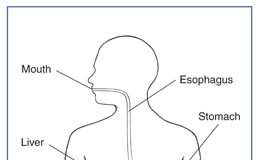Parents should be aware that many complementary health products, including dietary supplements and herbal medicines, have not been tested for safety or effectiveness in children. Because children’s metabolism and their immune, digestive, and central nervous systems are still maturing, side effects can differ from those seen in adults. This is especially true for infants and young children.
Nearly 12 percent of children (about 1 in 9) in the United States are using some form of complementary health product or practice, such as dietary or herbal supplements. A dietary or herbal supplement may contain many compounds and its active ingredients may not be known. Also, what’s on the label may not be what’s in the bottle. Analyses of dietary supplements, including herbal supplements, sometimes find differences between labeled and actual ingredients. For more information, see NCCIH’s fact sheet Using Dietary Supplements Wisely.
Here are examples of other safety concerns for some supplements that are often given to children:
- Dietary supplements, including herbal products, may interact with other products or medications your child is taking or have unwanted side effects on their own. A common combination seen in children is acetaminophen and vitamin C, which slows the body’s processing of acetaminophen.
- St. John’s wort has been shown to interact with many medications, including antidepressants, birth control pills, seizure control drugs, and certain drugs used to treat cancer.
- Melatonin, a hormone used as a sleep aid, may alter the levels of other hormones in young children and should not be used by children with certain medical conditions such as hormonal disorders, diabetes, liver or kidney disease, cerebral palsy, seizure disorders, migraine, depression, and hypertension.
- Probiotics have been studied for gastrointestinal conditions in children, and studies report that giving probiotics (along with rehydration therapy if needed) is generally safe. However, there is evidence that probiotics should not be given to critically ill patients. Researchers also note that the long-term effects of probiotics and their safety in children have not been well researched.
- The American Academy of Pediatrics does not recommend multivitamins for healthy children and adolescents who eat a varied diet. According to a 2012 report, children who take multivitamins are at greater risk than non-users of getting too much iron, zinc, copper, selenium, folic acid, and vitamins A and C. However, multivitamins may be needed for those who do not eat a varied diet, and those children who did not take multivitamins were found to have low levels of vitamins D and E and calcium.
Supplements Targeting Body Image
Products such as those advertised to reduce weight or increase strength are popular among teenagers but could be dangerous.
- Several widely marketed bodybuilding products sold as dietary supplements have been found to contain steroids. In 2009, the U.S. Food and Drug Administration issued a warning to consumers to stop using any products that are being marketed for bodybuilding and that claim to contain steroids or steroid-like substances. These products are potentially harmful and could lead to serious liver injury, stroke, kidney failure, or other serious conditions.
- Weight-loss supplements may contain numerous untested ingredients and have not been examined for safety or effectiveness in children. The possibility of product contamination is a main safety concern about dietary supplements for both children and adults, but the danger may be greater for children. Supplements have been found to contain hidden prescription drugs or other compounds, particularly in dietary supplements marketed for weight loss. In addition, herbs are sometimes misused by people with eating disorders such as anorexia nervosa and bulimia nervosa to induce vomiting and control their weight.
- Because of possible health risks, the American College of Sports Medicine recommends against anyone younger than age 18 using creatine, a naturally occurring compound in the body taken to enhance athletic performance.
It’s important that parents talk with their child’s health care provider about any complementary health approach that is being used or considered, and parents should encourage their teenagers to do the same. For tips about talking with health care providers about complementary health products and practices, see NCCIH’s Time to Talk campaign.
Syndicated Content Details:
Source URL: https://nccih.nih.gov/health/tips/childsupplements
Source Agency: National Center for Complementary and Integrative Health (NCCIH)
Captured Date: 2015-09-24 16:03:58.0








